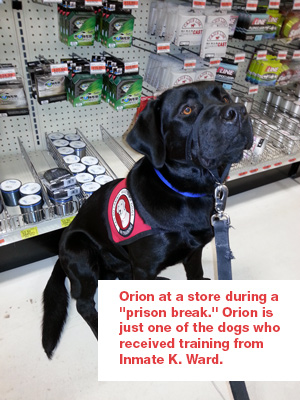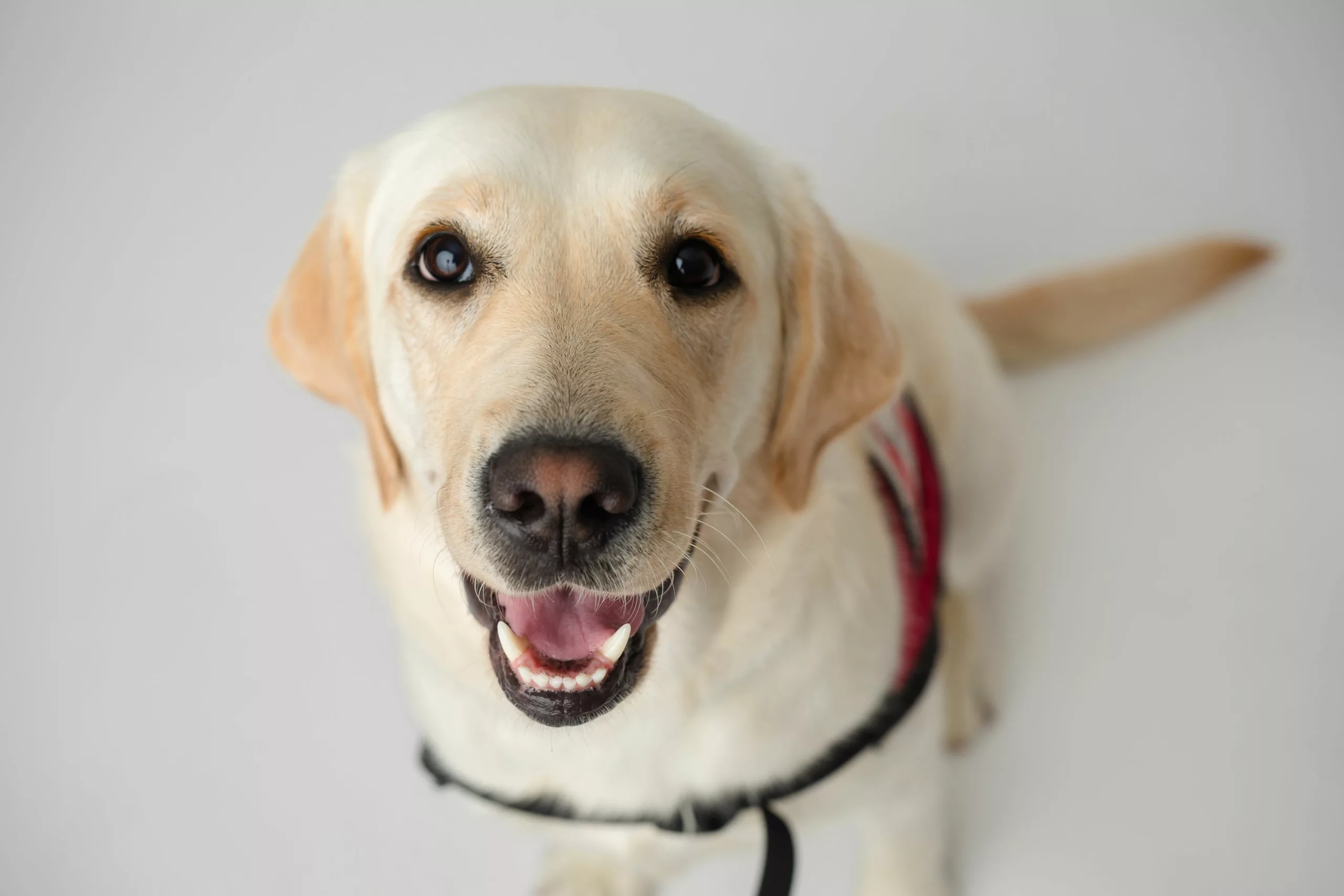 At any given time, 35 to 40 Can Do Canines assistance dogs are being raised in one of four Minnesota prisons. Two carefully-selected inmates are assigned to each dog. Inmates raise the dog, teach obedience, and in some cases, even teach assistance dog skills, such as pulling open a door or turning on a light switch.
At any given time, 35 to 40 Can Do Canines assistance dogs are being raised in one of four Minnesota prisons. Two carefully-selected inmates are assigned to each dog. Inmates raise the dog, teach obedience, and in some cases, even teach assistance dog skills, such as pulling open a door or turning on a light switch.
Much of this work is done behind the scenes where photographers and reporters are scarce. So when a released inmate involved with the program recently shared his thoughts about the importance of the program, we thought it important to share it with you!
Below is a letter from former inmate K. Ward from the Minnesota Correctional Facility, Faribault.
LETTER FROM MCF FARIBAULT INMATE K. WARD
“I’d like to start off by thanking all of the people who put the effort in to make an opportunity like this available for inmates to participate in. So to all of you at Can Do Canines and the staff at the Minnesota Correctional Institute at Faribault … Thank you. You may never really know what you have done for each of us individually, but here’s a little bit from me.
Upon arriving at Faribault I wasn’t sure what to expect. I did plan for a few fights and whatever else came my way, because prison is still prison. So when prison staff met with me and asked if I would be interested in joining the prison puppy program, I could not believe it. Me having a dog in prison never even crossed my mind. So I jumped at the opportunity not really knowing what to expect.
I had the pleasure of living with Thor [a smooth coat collie) and Orion [a black Labrador retriever]. Not only have I helped raise and train them to become amazing dogs, but they have helped me become a more amazing person. They gave me purpose every day to make the right decision that kept me out of sticky situations, The only altercation I found myself getting into was protecting the dogs and looking out for their best interest before my own. In short they have made me become a “model inmate,” but it won’t stop there because soon I will soon become a “model citizen of the community.” With the skills and knowledge I’ve gained in the program, my opportunities are endless.
I plan on keeping in contact with Can Do Canines in the future. If I can find the time, I will jump at the opportunity to raise more puppies. The hardest part is when you have to let them go. But knowing what these dogs are going to be doing makes it a bit easier to let them be on their way.
I do hope in the future that the prison staff considers more puppies to be raise here inside the fence. Not only does it benefit mostly everyone here, but more puppies means more happy clients. The additional work and responsibilities can cause stress for handlers and staff, but it’s a small sacrifice we can overcome to provide someone assistance through life and provide them with hope. That’s priceless.”
Thanks again.
Sincerely,
K. Ward.





